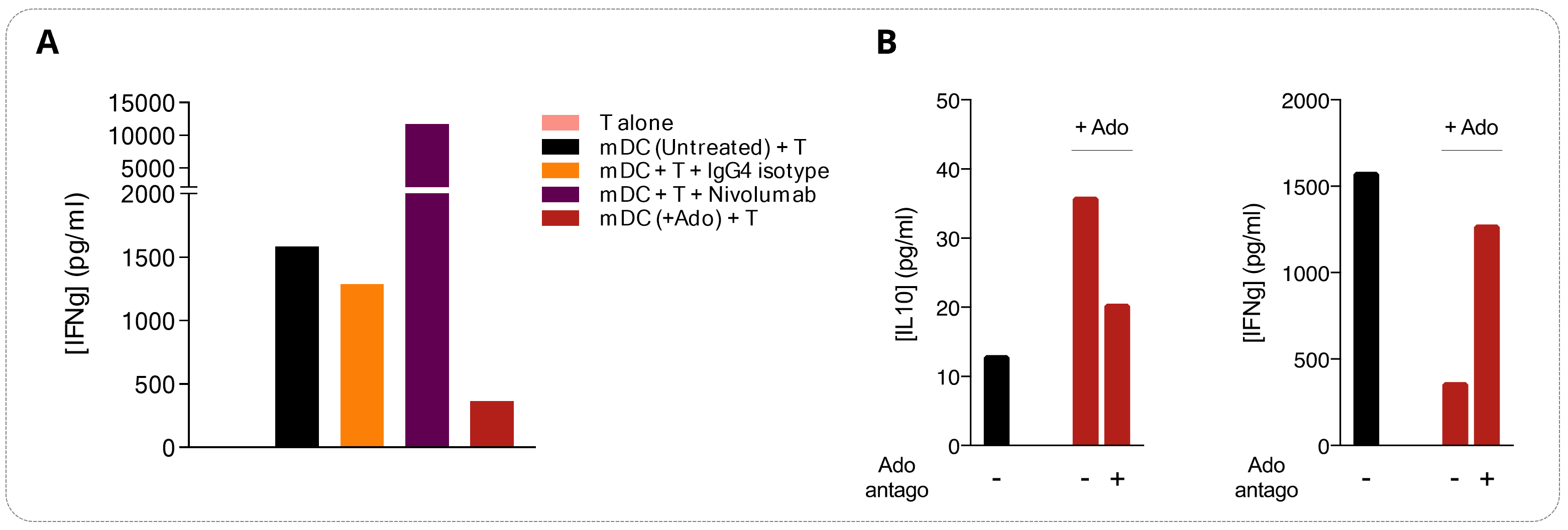Differentiation and maturation of competent dendritic cells (DCs) is critically dependent on their microenvironment. Among factors which can, in cancer, reach high levels in the tumor microenvironment, adenosine – one of the major immunosuppressive pathways – is known to modulate the function of many cell subsets, including DCs. Adenosine receptor stimulation skews DC differentiation toward a distinct cell population which has, unlike normal myeloid DCs, tolerogenic and suppressive phenotype expressing high levels of proinflammatory and immune suppressor factors, as well as impaired allostimulatory capacity.
Our data illustrated here through DC differentiation and mixed leukocyte reaction assays show that adenosine-mediated suppression results in the generation of phenotypically and functionally dysregulated DCs, and that this process is relieved by adenosine receptor antagonists. Our data also underline our DC-based assays as valuable tools for assessing adenosine pathway modulators as well as innovative candidate immunotherapeutics for their potential to enhance DC T cell-stimulating activity.
Figure 1. Phenotype and functional activity of adenosine-differentiated human DCs.
(A) Isolated peripheral blood monocytes-derived DCs are mixed with allogenic CD4+ T cells. IFNg levels released in the supernatants are measured after 72h using a specific HTRF-based kit. While normal mature DCs display an expected T cell-stimulating response amplitude, this MLR response is further optimized following PD1 blockade. However, adenosine (Ado) strongly impairs the ability of DCs at mediating T cell response.
(B) Supernatants from DC cultures or DC and allogenic CD4+ T cell co-cultures are processed for IL10 and IFNg quantifications, respectively, using specific HTRF-based kits. Adenosine-differentiated Dcs are shown to express the suppressive IL10 (left panel) and proinflammatory IL8, among other factors (data not shown), and exhibit a deteriorated allostimulatory potential (right panel). All these effects are mediated through adenosine receptors since abolished in the presence of adenosine receptor antagonist.
Figure 2. Adenosine induces phenotypically aberrant DC population.
Flow cytometry-based profiling of adenosine-mediated effect on DC differentiation and maturation. Adenosine skews DC differentiation and maturation toward a CD1alow CD14+ cell population.



